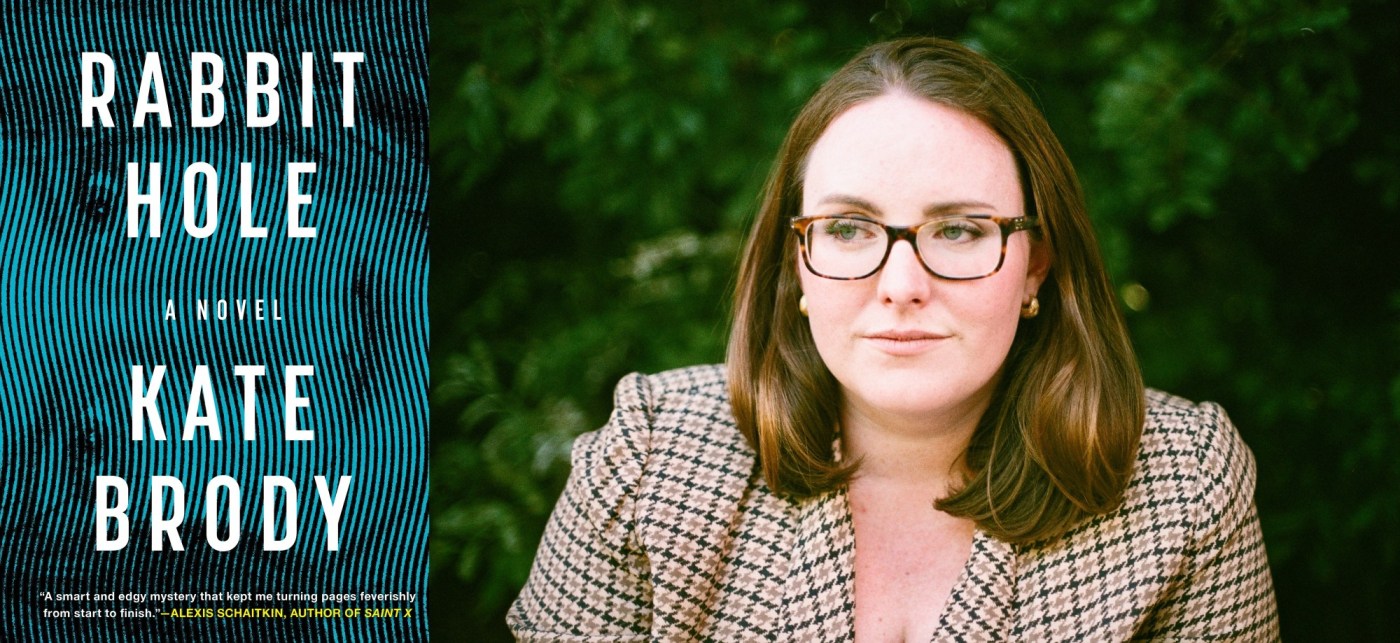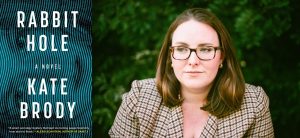
How Reddit’s true crime communities helped inspire Kate Brody’s ‘Rabbit Hole’
We’re all familiar with Internet rabbit holes. You go to Google with one question, and before you know it, you’re knee-deep in obscure Wikipedia pages or YouTube videos featuring people very excited to tell you their analysis of something that happened decades ago.
Kate Brody knows this phenomenon well. Her debut novel, “Rabbit Hole,” tells the story of Teddy, a woman investigating the disappearance of her sister, Angie, 10 years prior; she’s spurred to take another look at the case after her father dies in an apparent suicide.
Teddy learns that her father couldn’t let go of Angie’s case, and frequently haunted Reddit communities that discussed her disappearance. Teddy falls down the same rabbit hole, becoming grimly fascinated with conspiracy theories surrounding the case, and meets Mickey, a college student who knew her father. One thing becomes clear as the novel progresses: Teddy is beginning to become unmoored from reality.
Brody talked about “Rabbit Hole” from her home in Los Angeles. This conversation has been condensed and edited for length and clarity.
Q: How did the inspiration for this novel come to you?
I was teaching high school English at the time, so I had Teddy’s job, and the kids I taught were really into Reddit. I was slightly too old to be into Reddit the way that they were, but I was curious about it. It was in the news as this kind of boogeyman at the time, a lot of the incel communities were springing up there. So I dug into it a little bit and it just seemed fascinating, especially the true crime communities on Reddit, which had almost an old-school Internet feel, a chat room feel. And I liked that about it. I knew that it was going to be a crime novel to some degree, but I had initially conceived of it as a road trip book too, so the Teddy/Mickey relationship was right there. Everything else changed a lot in the drafts.
Q: Teddy has lost her sister and her father. Did you find it difficult to write about those two similar but different varieties of grief?
The harder one was the parental loss because she’s in this really stagnant period of her life. The loss of her sister has kind of unmoored them all for so long. So the question of how the loss of her father would affect her when she’s already in that space was the one I wanted to answer with the book. I think that’s why her grief takes an unusual form. She just doesn’t have anything else to give. She’s kind of cried out, and it’s so complicated by all of this information she finds out about her dad, so it gets twisted into this obsession that finds an outlet in these conspiracy theories.
I had been working on different projects about grief for a few years. I lost my dad, and that kind of shook me up, and at least my experience of it was those first couple months you’re almost in a daze. So in the immediate aftermath of his death, it made a lot of sense to me that she would just busy herself. She jumps right back into work, she jumps into this new relationship, she jumps into these online conspiracy theories. Grief is such a huge thing that you can’t really process it at all until you have some space from it.
Q: What kind of research went into this in terms of the true-crime communities on Reddit?
I [initially] had a very negative impression of the site. Before I had even looked at the true crime communities, I was interested in the incel culture on Reddit. My sister went to UC Santa Barbara and there was the [2014 Isla Vista] shootings while she was there, with that man who had that misogynistic manifesto. But I ended up spending a lot of time on Reddit, and actually kind of grew to love it. I don’t use it that much anymore, but it is addictive. I understand what people like about it. The community aspect of it is interesting to me, and I wanted to include some of that in the book. I liked the idea that this is a place for people like Teddy, who are without community, to find people.
Q: Teddy descends into what you could almost call an addiction, and starts losing touch with herself. What is it about her that makes her vulnerable to that? Is it just the grief?
She is somebody who really never developed an identity of her own. She was a teenager with a lot of potential, the golden child of the family. And when her sister disappeared, she just stopped. She’s in this kind of arrested development. She hasn’t really left home. She doesn’t really have a lot of friends. She doesn’t think about the future. She doesn’t think about the past. She is just in pure moment-to-moment survival mode and she’s also adolescent in many ways. So when she meets Mickey, who is this very charismatic adolescent essentially, who also resembles her sister, she is very susceptible to that because she doesn’t really know who she is. She’s not really established as a person.
Q: How did you decide to write this novel in the first person present tense?
Teddy lacks self-awareness, so it’s hard to include a ton of introspection. She’s not going to understand why she’s doing these things all the time. But I also need the reader to feel that it’s organic and inevitable, so that was kind of a tough line to toe. I did feel that the first-person present tense was important for this story because she’s not really processing what happened in the past. She’s also not planning for the future or any kind of life for herself. So that present tense – What am I doing now? How do I get through today? – felt like the right avenue for the story.
Q: I’ve got to ask this: Teddy’s last name is Angstrom and the book is called “Rabbit Hole.” Rabbit Angstrom is the main character of John Updike’s “Rabbit, Run.” Was that a kind of shout-out?
Yes, I was just kind of having fun with that. I’m not great at naming characters. I always struggle with it, especially last names. But I love “Rabbit, Run,” and that was a book that I had studied in grad school with Mary Gaitskill, who I adored and who I thought was such an insightful teacher. So it was just a little wink.
Related Articles
Why are the Emmys in January? It’s all about that strike
What to watch: ‘True Detective’ back for best season yet
Emmys 2024: Predictions for series and acting categories
Movie review: ‘Mean Girls’ more musical addendum to original film than contemporary remake
Embodying ‘an indomitable spirit’: A Q&A with Jody Vander Hart, the 2024 Klondike Kate


